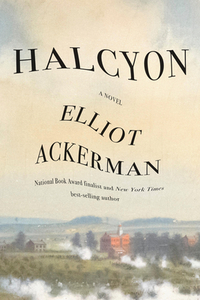Lords of Uncreation by Adrian Tchaikovsky
 Wednesday, May 24, 2023 at 9:13AM
Wednesday, May 24, 2023 at 9:13AM 
Published by Orbit on May 2, 2023
Lords of Uncreation brings The Final Architecture trilogy to a fitting end. It just takes an awfully long time to get there.
In Shards of Earth and Eyes of the Void, readers met the Architects, aliens who (perhaps for aesthetic reasons) reshaped planets, rendering them uninhabitable. Earth was one of their victims. Many humans died but many others scattered to the stars, using throughways that pass through “unspace” to shortcut travel times. Those humans formed colonies that are governed by the Hugh.
Outside the throughways, travel in unspace is precarious. Apart from navigational difficulties, unspace causes a sense of dread, a certainty that a monster is preparing to turn the traveler into a snack. Surviving a journey through unspace usually means going to sleep, but certain navigators called “ints” have had their brains rewired so they can stay awake in unspace without going mad.
The first two novels developed the plucky crew of the Vulture God, a ship that eventually takes on the task of saving humanity from the Architects and their evil masters. The crew interacts with a sect of human female warriors (the Partheni) who initially organized to protect humans, although a faction in the third novel wants nothing to do with other humans. The crew also deals with a spy from Hugh who returns in the final novel. Whether he will help them or kill them is a question about which the spy is of two minds.
Aliens who are also threatened by the Architects include insects that operate machines through collective effort, a race of shipbound aliens who avoid the risk of planetary destruction by living in space, traders that look like crabs, and a few species collectively known as the Hegemony who serve the Essiel, an alien race that likes to be worshipped.
The primary mysteries developed in the first two novels are (1) why are the Architects destroying worlds, (2) who do the Architects serve, (3) why are Architects unwilling to harm artifacts created by the Originators, (4) who were the Originators and what happened to them, (5) what is the scary presence that everyone senses in unspace, and (6) what lives at the core of unspace? Lords of Uncreation eventually answers those questions. The answers make sense within the context of the impressive worldbuilding (or universe building) that Adrian Tchaikovsky undertook.
The trilogy is a strong contribution to the subgenre of far future space opera involving humans (with some alien help, in this case) overcoming an alien menace. The future is created in so much detail that the background is at least as absorbing as the plot. Conflicts between factions of the human race and occasionally between humans and aliens all follow their own logic, the kind of logic that is recognizable throughout human history. The story is, in a word, smart.
In the grand space opera tradition, characters engage in acts of heroism, sometimes valiantly (including a Partheni who joins the Vulture God’s crew), sometimes reluctantly (including the int who is often part of the Vulture God’s crew and who holds the key to solving the mysteries described above). Even characters who are very different from 21st century humans are relatable in their emotions and desires. Characters evolve over the series; the spy, for example, turns into a better guy than his nature initially seems to permit.
The mysteries are answered with a creative (albeit incomplete) reinterpretation of what the universe is and, to some extent, how it was created and shaped. Suffice it to say that humans and aliens think too much and that all that thinking is troublesome to the shapers of the universe. There is a man-behind-the-curtain component to the mystery that will be satisfying to readers who agree that might doesn’t make right, particularly when the might is wielded by the weak to create the illusion of strength.
My knock on the last novel in this trilogy is its unnecessary length. Modern sf writers seem to feel the need to cram six or seven novels into three fat books. The worldbuilding and action in the first two novels is sufficiently interesting to overcome their length. This one seems wordy for no purpose other than to grow the word count. The first half not only struck me as padded but rushed. Tchaikovsky can be a skilled wordsmith, but the early prose in Lords of Creation is sometimes awkward or clichéd. Fortunately, his prose in the last 200 pages is sharper and the story comes to a satisfying finish that makes it worth wading through the unnecessary verbiage.
RECOMMENDED



